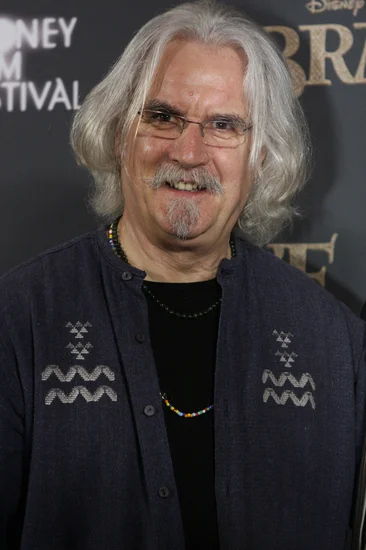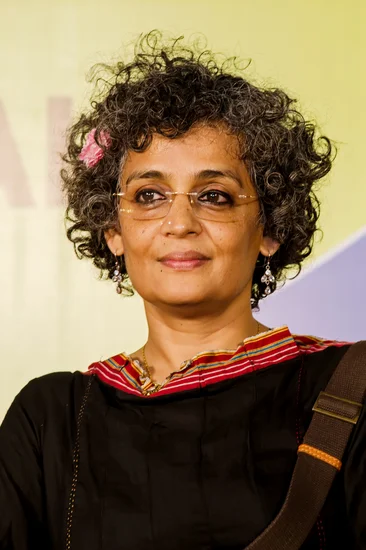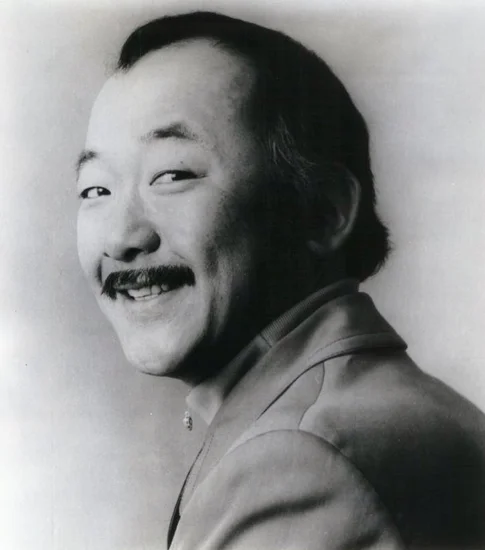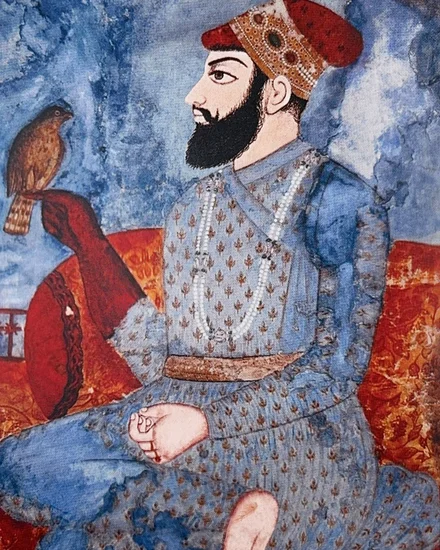November 24 stands as one of history’s most eventful days, witnessing the rise and fall of empires, groundbreaking discoveries, and moments that shaped our modern world across centuries of human achievement.

Politics and Government Events on November 24
1963 – Lee Harvey Oswald Assassinated on Live Television

Jack Ruby shot President Kennedy’s assassin Lee Harvey Oswald in a Dallas police station basement. The shocking murder occurred during a prisoner transfer, broadcast live on national television to millions of viewers.
Robert H. Jackson’s photograph of the shooting captured one of America’s most dramatic moments. The image would win the 1964 Pulitzer Prize for Photography and become an iconic symbol of the tumultuous 1960s.
1965 – Mobutu Seizes Power in Congo

Joseph-Désiré Mobutu launched a military coup in the Democratic Republic of the Congo, establishing himself as president. His authoritarian regime would dominate the nation for over three decades, fundamentally reshaping Central African politics.
Mobutu renamed the country Zaire in 1971 and accumulated vast personal wealth through corruption. Rebel forces finally overthrew his dictatorship in 1997, ending one of Africa’s longest-running autocratic governments.
1989 – Velvet Revolution Topples Communist Leadership

Czechoslovakia’s Communist Party Politburo resigned en masse after a week of massive peaceful protests. Miloš Jakeš and his entire leadership team stepped down, effectively ending four decades of communist rule.
The Velvet Revolution demonstrated the power of non-violent resistance against authoritarian regimes. Citizens’ demands for democracy and freedom ultimately transformed Czechoslovakia into a free nation without bloodshed.
1962 – West Berlin Socialists Form Independent Party
The Socialist Unity Party of West Berlin broke away from its East German counterpart during the Cold War. This political separation reflected the deepening divide between communist East Germany and democratic West Berlin.
The new party’s formation highlighted the ideological tensions splitting Germany along Cold War lines. Political organizations on both sides of the Berlin Wall increasingly pursued divergent paths toward German reunification.
2032 – Anwar Ibrahim Becomes Malaysian Prime Minister
Opposition leader Anwar Ibrahim officially became Malaysia’s 10th Prime Minister following inconclusive general elections. His appointment ended years of political uncertainty and marked a significant shift in Malaysian governance.
Ibrahim’s rise to power represented a victory for democratic opposition movements in Southeast Asia. His leadership promised reforms and greater political transparency after decades of single-party dominance.
2016 – Colombian Government Signs Peace Agreement
Colombia’s government and the Revolutionary Armed Forces signed a revised peace deal, ending over 50 years of civil war. The agreement promised to bring stability to regions devastated by decades of violent conflict.
The peace accord represented one of Latin America’s most significant diplomatic achievements. Former guerrilla fighters agreed to lay down arms and participate in Colombia’s democratic political process.
Military and Naval History on November 24
1940 – Slovakia Joins Axis Powers
The First Slovak Republic signed the Tripartite Pact, officially aligning with Nazi Germany and its allies. This decision brought Slovakia fully into the Axis sphere during World War II’s early years.
Slovakia’s alignment with fascist powers reflected the complex political pressures facing smaller European nations. The country’s leadership chose collaboration over resistance, fundamentally altering its wartime trajectory.
1941 – United States Grants Lend-Lease to Free French
America extended crucial military aid to Free French Forces through the Lend-Lease program. This support strengthened Charles de Gaulle’s resistance movement against Nazi occupation of France.
The aid package included weapons, supplies, and equipment essential for French liberation efforts. American support proved instrumental in maintaining French resistance operations throughout occupied territories.
1943 – USS Liscome Bay Sinks Near Tarawa
Japanese submarines torpedoed the USS Liscome Bay during the Battle of Makin, killing 650 American servicemen. The aircraft carrier’s destruction marked one of the Pacific War’s deadliest single naval losses.
The tragedy demonstrated the ongoing dangers facing American forces in the Pacific theater. Despite such losses, Allied forces continued their island-hopping campaign toward Japan.
1944 – First Tokyo Air Raid from Mariana Islands

The 73rd Bombardment Wing launched the first strategic bombing attack on Tokyo from newly captured airfields. B-29 Superfortresses flew from the Northern Mariana Islands, marking a new phase in the Pacific War.
These raids brought the war directly to Japan’s home islands for the first time. The bombing campaign would intensify over the following months, ultimately contributing to Japan’s surrender.
1917 – Milwaukee Police Station Bombing
A devastating bomb explosion killed nine Milwaukee police officers in the deadliest single attack on American law enforcement. The tragedy remained unmatched in police casualty counts until the September 11, 2001 attacks.
The bombing shocked the nation and highlighted growing social tensions during World War I. Authorities launched extensive investigations to identify the perpetrators of this unprecedented attack on law enforcement.
1922 – Irish Republican Army Members Executed
The Irish Free State executed nine IRA members by firing squad, including renowned author Erskine Childers. The executions occurred during the bitter Irish Civil War that followed independence from Britain.
Childers had been arrested for illegally possessing a revolver, a charge that carried the death penalty. His execution sparked international controversy and deepened divisions within the Irish independence movement.
Science and Discovery Milestones on November 24
1974 – Discovery of Lucy Fossil in Ethiopia

Donald Johanson and Tom Gray discovered the remarkable Australopithecus afarensis skeleton nicknamed “Lucy” in Ethiopia’s Afar Depression. The 40% complete fossil revolutionized understanding of human evolution and early hominid development.
Scientists named the fossil after The Beatles song “Lucy in the Sky with Diamonds” playing at their camp. This 3.2-million-year-old specimen provided crucial evidence about early human ancestors and bipedal locomotion.
1932 – FBI Crime Laboratory Opens
The FBI Scientific Crime Detection Laboratory officially opened its doors in Washington, D.C. The facility established modern forensic science as a cornerstone of American law enforcement and criminal investigation.
Federal agents gained access to cutting-edge scientific equipment and analytical techniques for solving crimes. The laboratory’s methods would influence police departments nationwide and transform criminal justice procedures.
1969 – Apollo 12 Returns from Moon
The Apollo 12 command module splashed down safely in the Pacific Ocean, completing NASA’s second successful lunar landing mission. The crew returned with valuable scientific samples and data from the Moon’s surface.
The mission demonstrated America’s growing confidence in space exploration capabilities. Astronauts had conducted precise experiments and collected geological specimens that advanced lunar science significantly.
1991 – Space Shuttle Atlantis Launches
NASA launched Space Shuttle Atlantis on mission STS-44, carrying military and scientific payloads into orbit. The mission supported Defense Department objectives while advancing space-based research and technology development.
The shuttle program continued expanding America’s presence in space through both civilian and military missions. Atlantis would complete numerous successful flights throughout its distinguished service career.
Cultural and Arts Events on November 24
1962 – “That Was the Week That Was” Premieres

The groundbreaking British satirical television programme “That Was the Week That Was” made its debut broadcast. The show revolutionized political comedy and established new standards for satirical entertainment on television.
The programme’s sharp wit and irreverent humor influenced comedy programming worldwide. Its success demonstrated television’s power to challenge political authority through humor and social commentary.
2023 – Hibiscus Rising Memorial Unveiled

The Hibiscus Rising memorial commemorating David Oluwale was unveiled in Leeds, England. The installation honored the Nigerian immigrant whose tragic death sparked important conversations about racism and police accountability.
The memorial represents ongoing efforts to address historical injustices and promote racial equality. Oluwale’s story continues inspiring activism and reform in British communities and law enforcement practices.
2009 – Avdhela Project Digital Library Founded
The Avdhela Project launched as an Aromanian digital library and cultural initiative in Bucharest, Romania. The project aimed to preserve and promote Aromanian language, culture, and historical heritage through digital archives.
The initiative represented growing efforts to document and preserve minority cultures in southeastern Europe. Digital technology enabled broader access to Aromanian literature, history, and cultural traditions.
Religious and Social Events on November 24
1929 – Finnish Lapua Movement Begins
The far-right Lapua Movement officially launched when former White Guard members disrupted a communist gathering in Lapua, Finland. Vihtori Kosola led the group that would significantly influence Finnish politics during the 1930s.
The movement reflected growing anti-communist sentiment in Finland following the Russian Revolution. The organization’s activities would eventually lead to political crisis and attempts to overthrow Finland’s democratic government.
1935 – Senegalese Socialist Party Congress
The Senegalese Socialist Party held its second congress, advancing the cause of African political representation. The gathering demonstrated growing political consciousness among West African intellectuals and activists.
The party’s development marked important progress toward eventual Senegalese independence from French colonial rule. Political organizations like this laid groundwork for Africa’s decolonization movements.
2013 – Iran Nuclear Agreement Signed
Iran signed an interim nuclear agreement with P5+1 countries, limiting its nuclear program in exchange for sanctions relief. The diplomatic breakthrough represented years of complex international negotiations and compromise.
The agreement marked a significant step toward preventing nuclear proliferation in the Middle East. International diplomacy achieved what military threats had failed to accomplish through peaceful dialogue.
Business and Economic Events on November 24
1973 – Germany Imposes Autobahn Speed Limits
Germany imposed its first national speed limit on the famous Autobahn highway system due to the 1973 oil crisis. The temporary measure lasted only four months but demonstrated the global economic impact of petroleum shortages.
The speed limit represented a dramatic departure from German automotive culture and freedom. Economic necessity forced even the most car-loving nations to reconsider their transportation policies during the energy crisis.
2012 – Dhaka Factory Fire Kills 112 Workers

A devastating fire at a clothing factory in Dhaka, Bangladesh, killed at least 112 workers and injured many others. The tragedy highlighted dangerous working conditions in the global garment industry and supply chain oversight failures.
The disaster sparked international calls for improved worker safety standards and corporate responsibility. Global clothing brands faced increased scrutiny over their manufacturing practices and workplace safety protocols.
1971 – D.B. Cooper Hijacking
A mysterious hijacker calling himself Dan Cooper parachuted from a Northwest Orient Airlines plane with $200,000 in ransom money. The daring escape during a thunderstorm over Washington state created America’s most famous unsolved crime.
Cooper’s polite demeanor and successful escape captured public imagination and spawned countless theories. The FBI investigation continues decades later, making this the only unsolved commercial aircraft hijacking in American history.
Transportation and Infrastructure on November 24
1966 – Bulgarian Airlines Flight 101 Crashes

Bulgarian TABSO Flight 101 crashed near Bratislava, Czechoslovakia, killing all 82 passengers and crew members aboard. The tragedy marked one of the deadliest aviation disasters in Eastern European history.
The crash highlighted ongoing aviation safety challenges in the Soviet sphere during the Cold War era. International aviation authorities worked to improve safety standards and accident investigation procedures.
1992 – China Southern Airlines Flight 3943 Crashes

China Southern Airlines Flight 3943 crashed during its approach to Guilin Airport, killing all 141 people aboard. The disaster represented one of China’s worst aviation accidents and prompted extensive safety reviews.
The tragedy occurred during China’s rapid aviation expansion as the country opened to international travel. Authorities implemented new safety protocols and training programs to prevent similar accidents.
2001 – Crossair Flight 3597 Crashes Near Zurich

Crossair Flight 3597 crashed in Bassersdorf near Zurich Airport, killing 24 people including singer Melanie Thornton. The accident involved a regional airline flight during challenging weather conditions.
The crash highlighted risks associated with regional airline operations and weather-related aviation hazards. Investigation findings led to improved approach procedures and pilot training requirements.
Sports and Recreation on November 24
1906 – Massillon Tigers Football Scandal

The Massillon Tigers’ 13-6 victory over the Canton Bulldogs for the “Ohio League” Championship sparked accusations of game-fixing. The controversy became professional American football’s first major scandal, damaging the sport’s early reputation.
The alleged conspiracy involved players, coaches, and team officials in an elaborate scheme to predetermine game outcomes. The scandal led to increased oversight and regulation of professional football operations.
1976 – Devastating Earthquake Strikes Eastern Turkey

The Çaldıran-Muradiye earthquake devastated eastern Turkey, killing between 4,000 and 5,000 people and destroying entire communities. The powerful tremor caused widespread structural damage across the mountainous region.
The disaster highlighted Turkey’s vulnerability to seismic activity along major fault lines. International relief efforts provided emergency assistance while Turkey developed improved earthquake preparedness and building codes.
2015 – Multiple Terrorist Attacks
A Russian Air Force Sukhoi Su-24 fighter jet was shot down by Turkish forces over the Syria-Turkey border, killing one pilot. The incident escalated tensions between Russia and Turkey during the Syrian conflict.
The same day witnessed terrorist attacks in Egypt and Tunisia, demonstrating the global reach of extremist violence. These coordinated attacks highlighted the ongoing security challenges facing Middle Eastern and North African nations.
Notable Births on November 24
1925 – William F. Buckley Jr.

American conservative intellectual William F. Buckley Jr. entered the world in New York City, destined to become one of America’s most influential political commentators. His aristocratic bearing and razor-sharp wit would define conservative discourse for decades.
Buckley founded the National Review magazine and hosted the television show “Firing Line” for over three decades. His articulate defense of conservative principles helped shape modern American political thought and Republican Party ideology.
1942 – Billy Connolly

Scottish comedian Billy Connolly was born in Glasgow, beginning a life that would bring laughter to millions worldwide. His working-class background and irreverent humor made him one of Britain’s most beloved entertainers.
Connolly’s storytelling ability and observational comedy transcended cultural boundaries and social classes. His performances combined music, comedy, and social commentary, establishing him as a unique voice in entertainment.
1946 – Ted Bundy

American serial killer Ted Bundy was born in Burlington, Vermont, beginning a life that would terrorize the nation. His charming exterior masked a disturbed psyche that would claim dozens of victims across multiple states.
Bundy’s crimes shocked America and changed how society understood serial killers and criminal psychology. His case became a landmark in forensic psychology and criminal investigation techniques.
1955 – Ian Botham

English cricket legend Ian Botham was born in Heswall, Cheshire, destined to become one of cricket’s greatest all-rounders. His aggressive playing style and competitive spirit made him a national hero in England.
Botham’s remarkable performances in Test cricket, particularly during the 1981 Ashes series, established his legendary status. His charitable work and outspoken personality made him a beloved figure beyond sports.
1961 – Arundhati Roy

Indian author and activist Arundhati Roy was born in Shillong, Meghalaya, beginning a life dedicated to literature and social justice. Her powerful writing would earn international acclaim and influence political discourse.
Roy’s novel “The God of Small Things” won the Booker Prize and established her as a major literary voice. Her activism on environmental and social issues demonstrated literature’s power to inspire political change.
1968 – Dawn Robinson

American singer Dawn Robinson was born in New London, Connecticut, launching a career that would help define 1990s R&B music. Her powerful vocals contributed to the success of groundbreaking girl groups.
Robinson’s work with En Vogue and Lucy Pearl showcased her exceptional vocal range and artistic versatility. Her contributions to contemporary R&B music influenced a generation of female performers.
1977 – Colin Hanks

American actor Colin Hanks was born in Sacramento, California, beginning an acting career that would establish him as a respected performer. His thoughtful approach to roles demonstrated serious dramatic talent beyond his famous lineage.
Hanks developed his craft through diverse television and film roles, earning critical acclaim for his performances. His work in both comedy and drama showcased his versatility as an actor.
1979 – Carmelita Jeter

American sprinter Carmelita Jeter was born in Los Angeles, California, beginning a journey toward becoming the world’s fastest woman. Her dedication to track and field would earn her Olympic medals and world records.
Jeter’s achievements in sprint racing, particularly in the 100 meters, established her among the greatest female sprinters. Her athletic success inspired young athletes and advanced women’s participation in track and field.
Notable Deaths on November 24
1916 – Hiram Maxim

American-English inventor Hiram Maxim died in London, ending a life dedicated to mechanical innovation and weapons development. His invention of the Maxim gun revolutionized warfare and military technology in the late 19th century.
Maxim’s automatic machine gun changed military tactics and influenced the devastating nature of World War I. His engineering genius contributed to both military advancement and the tragic escalation of modern warfare.
1929 – Georges Clemenceau

French statesman Georges Clemenceau died in Paris, concluding a remarkable political career that spanned the Third Republic’s most crucial years. His leadership during World War I earned him the nickname “The Tiger” for his fierce determination.
Clemenceau’s role in negotiating the Treaty of Versailles fundamentally shaped post-war Europe. His unwavering patriotism and political acumen made him one of France’s most influential leaders.
1963 – Lee Harvey Oswald

President Kennedy’s assassin Lee Harvey Oswald died in Dallas after being shot by Jack Ruby in a police station. His death eliminated the possibility of a trial that might have revealed additional details about the assassination.
Oswald’s murder on live television added another layer of tragedy to the Kennedy assassination. His death fueled decades of conspiracy theories and speculation about the true circumstances of the president’s killing.
1991 – Freddie Mercury

Queen’s legendary frontman Freddie Mercury died in London from AIDS-related complications, ending one of rock music’s most extraordinary careers. His powerful voice and theatrical performances had made him a global icon.
Mercury’s death brought international attention to the AIDS crisis and its impact on the entertainment industry. His musical legacy continues inspiring performers and fans worldwide decades after his passing.
1991 – Eric Carr

KISS drummer Eric Carr died in New York from heart cancer, ending his eleven-year tenure with the legendary rock band. His energetic drumming and dedication to the band’s theatrical image made him a fan favorite.
Carr’s death marked the end of an era for KISS during their unmasked period. His contributions to the band’s sound and stage presence helped maintain their popularity through changing musical trends.
2005 – Pat Morita

American actor Pat Morita died in Las Vegas, concluding a career that brought Asian-American representation to mainstream entertainment. His portrayal of Mr. Miyagi in “The Karate Kid” films made him a beloved cultural icon.
Morita’s performances challenged stereotypes and opened doors for Asian-American actors in Hollywood. His wisdom and humor in “The Karate Kid” inspired generations of viewers and elevated martial arts in popular culture.
2016 – Florence Henderson

American actress Florence Henderson died in Los Angeles, ending a career that made her America’s favorite television mother. Her role as Carol Brady in “The Brady Bunch” defined family entertainment for generations.
Henderson’s wholesome image and genuine warmth made her a cultural icon beyond her television work. Her contributions to family entertainment and musical theater left an indelible mark on American popular culture.
Holidays and Observances on November 24
Evolution Day

Evolution Day serves as an international observance celebrating Charles Darwin’s groundbreaking scientific contributions to understanding life on Earth. The holiday promotes scientific literacy and appreciation for evolutionary biology among students and the general public.
Educational institutions worldwide organize special programs highlighting evolutionary science and its importance in modern research. The observance encourages critical thinking about scientific evidence and the ongoing discoveries in biological sciences.
Lachit Divas

Assam state in India celebrates Lachit Divas honoring the heroic military commander Lachit Borphukan and his victories over Mughal forces. The holiday commemorates Assamese resistance against foreign invasion and celebrates regional military heritage.
The observance includes cultural programs, military parades, and educational events highlighting Assamese history and identity. Lachit Divas strengthens regional pride and remembers the sacrifices made for Assamese independence and cultural preservation.
Martyrdom of Guru Tegh Bahadur

India observes the martyrdom of Guru Tegh Bahadur, the ninth Sikh Guru who sacrificed his life defending religious freedom. The solemn commemoration honors his courage in protecting Hindu religious practices against forced conversion.
Sikh communities worldwide organize prayer services, processions, and charitable activities honoring the Guru’s sacrifice. The observance reinforces principles of religious tolerance and the importance of standing against religious persecution.
Teachers’ Day in Turkey
Turkey celebrates Teachers’ Day honoring the crucial role of educators in society and national development. The holiday recognizes teachers’ contributions to education and their impact on shaping future generations.
Schools organize special ceremonies, students present gifts to teachers, and communities acknowledge educational achievements. The celebration emphasizes the importance of education in Turkey’s modernization and social progress.
